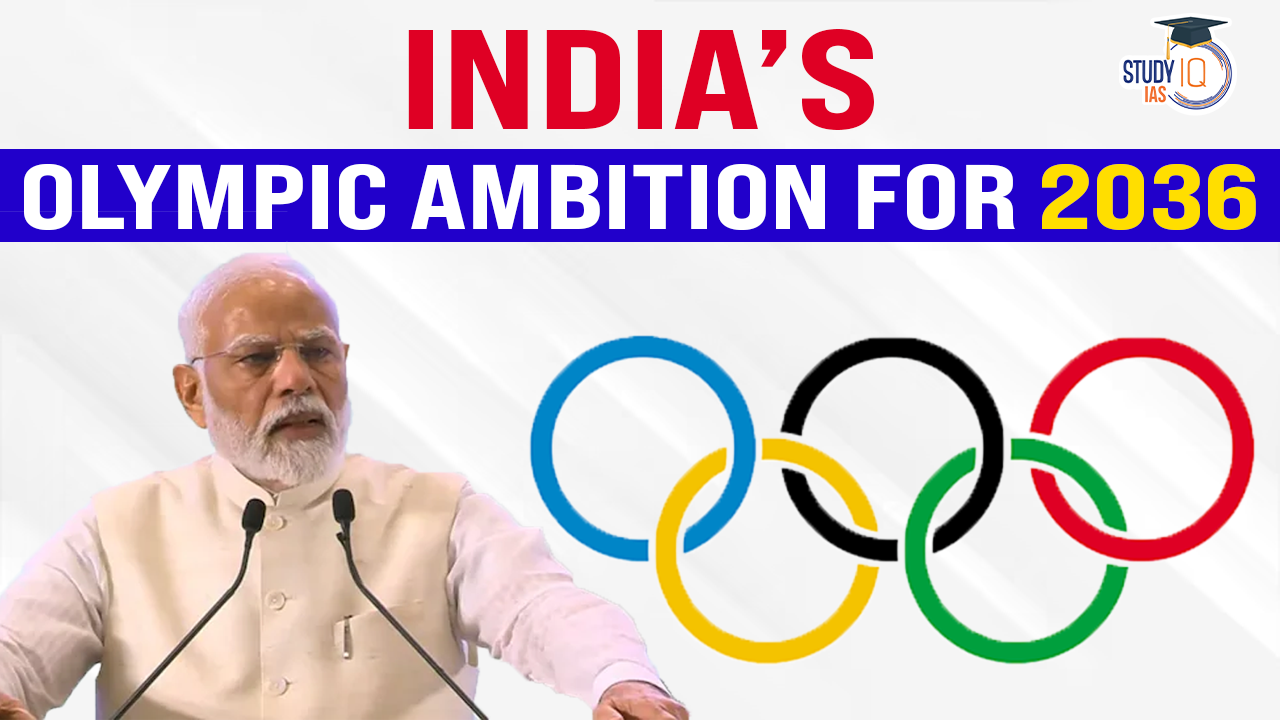Table of Contents
Olympic Host Selection Process
- Reformed Bidding Process: The International Olympic Committee (IOC) has overhauled its selection process for future Olympic hosts, following corruption allegations related to the Rio 2016 and Tokyo 2020 Games.
- The new process involves confidential exchanges led by the Future Host Commission (FHC) (a dedicated body set up by the IOC) which assesses feasibility, environmental concerns, and human rights standards.
- Election Timeline: The IOC is expected to hold an election in 2026 to select the host city for the 2036 Olympics, based on the FHC’s dialogue and assessments.
| Facts |
| The new process of selection was first used for selecting Brisbane for hosting the 2032 Olympic Games. |
India’s Preparatory Steps
- 2010 Commonwealth Games as a Milestone: India’s journey towards hosting the Olympics began with the successful hosting of the 2010 Commonwealth Games in New Delhi, which led to the reform of sports associations through the National Sports Development Code.
- Khelo India Scheme: Launched in 2017, this scheme aims to improve sports infrastructure and talent development at the grassroots level. The Khelo India Rising Talent Identification program specifically targets young athletes aged 9 to 18, with 28 Khelo India athletes participating in the Paris Olympics.
State-Level Sports Infrastructure
- Sports as a State Subject: Under the Indian Constitution, sports fall under the State List, meaning individual states are responsible for developing sports infrastructure.
- Tamil Nadu’s Leadership: Tamil Nadu leads in sports infrastructure, with nearly 390 Olympic-standard facilities and plans for a Global Sports City near Chennai.
- The state has also hosted international beach sports events, highlighting its advanced capabilities.
- Other States with Infrastructure: Delhi and Odisha also have significant sports infrastructure, with 161 and 153 Olympic-standard facilities, respectively.
- Odisha’s Bhubaneswar has hosted major events like the FIH Odisha Hockey Men’s World Cup 2023, showcasing its world-class facilities.
Strategic Planning for the Olympic Bid
- Cost-Efficiency and Collaboration: The largest expense in hosting the Olympics is building infrastructure.
- India can reduce costs by leveraging existing facilities in states like Tamil Nadu, Delhi, and Odisha, similar to Paris’ approach for the 2024 Olympics.
- Need for National Consensus: The success of India’s Olympic bid will depend on a unified national effort, with leadership from the Union government.
- A multi-stakeholder committee should be formed to represent various states and plan the bid, ensuring it aligns with FHC criteria and showcases India’s full potential.


 Places in News for UPSC 2025 for Prelims...
Places in News for UPSC 2025 for Prelims...
 New Phase of Operation Chakra to Combat ...
New Phase of Operation Chakra to Combat ...
 Soyuz Aircraft: History, Design and Sign...
Soyuz Aircraft: History, Design and Sign...





















